-
About
-
Advisory Councils
-
-
For Students
-
Membership
Programs
Chapters
-
-
For Educators
-
MEMBERSHIP
CHAPTERS
OPPORTUNITIES
STUDENTS (Grades 5-12)
CONFERENCES
-
-
For Professionals
-
Membership
Programs
Chapters
Opportunities
-
-
Partners & Sponsors
-
Become a Supporter
Career Hub & Opportunities Board
-
-
News & Events
-
Recent News
Upcoming Events
2024 AISES National ConferenceOctober 3, 2024 to October 5, 20242025 AISES National ConferenceOctober 2, 2025 to October 4, 2025
-
- Resource Center
- DONATE
- Home
- 2023 AISES Board of Directors Election
2023 AISES Board of Directors Election

The polls are now open for the 2023 Board of Directors election! AISES conducts voting electronically. If you need a paper ballot please contact nominations@aises.org. All AISES professional and college members in good standing are eligible to vote for a maximum of three nominees. All votes must be cast by 11:59 EDT on September 1, 2023. The online ballot is pre-set to close at 5:59 pm (HST); 7:59 pm (AKDT); 8:59 pm (PDT); 9:59 (MDT) pm; 10:59 pm (CDT); 11:59 pm (EDT) on the deadline. Once closed, no further ballots are accepted by the platform.
You must log into the AISES membership portal to vote and if you have trouble logging in, you may need to renew your membership. If you forgot your password, you may reset it at: https://aises.site-ym.com/general/email_pass.asp. If you need assistance with your login, please contact AISES Membership at membership@aises.org or call 720-758-9746.
2023 Nominees
Dr. Kenneth L. Bowen
Lumbee Tribe of NC and Pee Dee Tribe of SC
Dr. Kenneth L. Bowen is an Indigenous educator, growth strategist, consultant, & leader who uses his passions to inspire others to achieve growth.
Dr. Bowen has served as a cabinet level leader in school districts and as a leader with private businesses. He has successful experience securing grants and designing new academic programs such as leading the startup of a Marine Science Academy and earning a large STEM grant. Dr. Bowen has a wealth of experience in education, business, law, finance, operations, and government. He has held various positions in both public and private sectors. In each role, he gained multiple accolades while achieving lasting success and supporting STEM education.
Dr. Bowen is an honors graduate of UNC Pembroke where he earned his BA Degree in History with a concentration in Education. He earned certification in AP US History from UNC Charlotte. He returned to UNCP and earned a Master of School Administration Degree. In 2012, Dr. Bowen was named the Young Alumnus of the Year for UNC Pembroke. He attended East Carolina University and earned his Doctorate of Educational Leadership Degree. In 2016, he was named to East Carolina University’s 40 under 40.
Why would you like to serve on the AISES Board of Directors?
As an American Indian (Lumbee Tribe of North Carolina and Pee Dee Tribe of South Carolina) I am deeply passionate about empowering and uplifting indigenous communities through science, technology, engineering, and mathematics (STEM) fields. Serving on the AISES Board of Directors would be an incredible opportunity to contribute my expertise and dedication to advancing the representation and success of indigenous students and professionals in STEM. As a member of the board, I aspire to promote indigenous representation within STEM education and careers, fostering a supportive environment for underrepresented individuals to thrive. I envision implementing strategic initiatives to expand AISES' outreach, strengthen partnerships, and provide comprehensive support for the next generation of indigenous STEM leaders. Through my involvement on the board, I aim to make a lasting impact on the trajectory of indigenous students and professionals in the STEM community, creating a more inclusive and equitable future for all.
What is your past experience/association with AISES?
My journey with AISES has been a transformative and enriching experience, driven by my unwavering commitment to supporting indigenous representation in STEM fields. As highlighted in my article "Supporting Indigenous STEM Through AISES," published on LinkedIn, my engagement with AISES has provided me with a platform to advocate for indigenous representation within the STEM community. Through various leadership roles and serving as an educational leader, I have witnessed firsthand the profound impact of this organization in nurturing and empowering indigenous students and professionals. Most recently I volunteered as a scholarship reader for AISES. Collaborating with like-minded individuals, I have contributed to expanding opportunities for indigenous students and individuals to thrive in STEM careers. My past experiences with AISES have fueled my passion to continue championing this cause, and I am dedicated to fostering a brighter future for indigenous STEM leaders through my ongoing involvement with the organization.
Describe your fundraising and major gifts cultivation experience.
With a proven track record of success, my fundraising and major gifts cultivation experience has been instrumental in driving impactful initiatives in education. As evidenced by my LinkedIn profile, I have effectively strategized and executed comprehensive fundraising campaigns for diverse organizations, including raising $46K in two months for the 2023 Region 7 AISES Conference. Leveraging my expertise in relationship building, I have nurtured strong connections with major donors, corporations, and foundations, securing significant contributions to advance important causes. My ability to articulate compelling narratives and showcase the impact of philanthropic investments has fostered a culture of giving among stakeholders. Furthermore, I have adeptly managed donor stewardship, ensuring long-term engagement and support. Through my fundraising acumen and dedication, I have made substantial contributions to the success of numerous projects and organizations, making a lasting difference in the communities and causes I serve.
Given the strategic goal of increasing value to all AISES members, what skills and resources can you provide toward the success of this strategic initiative?
As an experienced leader with a commitment to the strategic goal of increasing value for AISES members, I possess a diverse set of skills and resources to contribute to the success of this initiative. With a proven background in program development, I can design and implement innovative initiatives tailored to the specific needs and interests of diverse target populations within AISES. My experience in working with underrepresented communities and promoting diversity and inclusion in STEM allows me to create impactful programs.
Furthermore, my ability to conduct comprehensive outcome evaluations enables me to measure the effectiveness and impact of these programs, ensuring continuous improvement and growth. Leveraging my extensive network and relationship-building skills, I can forge collaborations with external partners to enhance resources available to members. Through my dedication, I aim to contribute significantly to empowering indigenous students and professionals in STEM and fostering a supportive and thriving community for members.
Share your previous experience in serving on a nonprofit Board of Directors. Specify your understanding of the associated fiduciary responsibilities required of a Board member.
As a member of nonprofit boards, my diverse experience showcases a deep commitment to STEM education. Serving on the AISES Region 7 Planning Board, the SC DOE International Teacher Advisory Board, and the NC District 5 Safer Schools Task Force, I have contributed to enhancing educational opportunities. Furthermore, my involvement with the Public School Forum of NC and appointment to the 2016 US DOE Rule Negotiating Committee for ESSA highlights my experience in shaping educational policies and advocating for positive change.
Understanding the fiduciary responsibilities associated with board membership, I have prioritized financial stewardship, ensuring prudent budgeting and resource allocation. My role has been to make well-informed decisions, uphold ethical standards, and maintain compliance with relevant laws. My extensive support of school boards has provided valuable insights into the importance of strategic planning and success of nonprofit organizations. I continuously strive to make a positive impact for those I serve.
Statements of Endorsements
Gary Burnette
As a current AISES Board Member, I wholeheartedly support Dr. Kenneth Bowen's candidacy for the AISES Board of Directors. Dr. Bowen's exceptional leadership and dedication to advancing Native American representation in STEM education makes him an ideal fit for the Board. His invaluable contributions as a member of the AISES Region 7 Planning Board showcase his ability to drive impactful initiatives and foster a sense of unity among stakeholders.
In particular, Dr. Bowen's remarkable fundraising efforts for the 2023 AISES Region 7 Conference were instrumental in its success. His strategic approach and excellent relationship-building skills enabled us to secure significant contributions from various partners and donors. Dr. Bowen's commitment to ensuring that the conference delivered a transformative experience for attendees, promoting educational opportunities and professional growth, further underscores his potential to be an asset to the AISES Board of Directors.
I firmly believe that with Dr. Kenneth Bowen's visionary leadership and fundraising acumen, he will play a pivotal role in shaping AISES' future and driving positive change for Native American STEM scholars and professionals. His presence on the Board will undoubtedly propel AISES to new heights of excellence.
Jennifer Graham
As a board member of the Waccamaw-Siouan Tribal Council, a member of AISES, and a member of Alpha Pi Omega, I am delighted to endorse Dr. Kenneth Bowen for the AISES Board of Directors.
Dr. Bowen's remarkable dedication to advancing Native American representation in STEM fields aligns perfectly with the core values of AISES. His extensive experience, including serving on the AISES Region 7 Planning Board, showcases his commitment to empowering indigenous students and professionals in STEM.
Dr. Bowen's impressive involvement with educational initiatives, such as the SC International Teacher Advisory Board and the NC District 5 Safer Schools Task Force, demonstrates his passion for enhancing STEM learning environments. Additionally, his appointment to the 2016 US Department of Education’s Rule Negotiating Committee for the Every Student Succeeds Act underscores his expertise in shaping impactful educational policies.
I firmly believe that Dr. Bowen's visionary leadership, strategic insights, and relentless advocacy make him an exceptional candidate for the AISES Board of Directors. He will undoubtedly contribute significantly to AISES' mission and drive positive change for Native American students and professionals in the STEM community.
Without a doubt, Dr. Kenneth Bowen possesses the visionary leadership and strategic acumen needed to excel as a member of the AISES Board of Directors, and I firmly believe his invaluable insights will significantly contribute to AISES' mission and uplift the Indigenous STEM community.
Dr. Roger R Dube
Enrolled member of the Abenaki Nation, and Mohawk Turtle clan 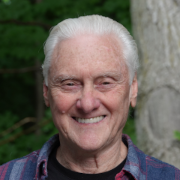
- BA in physics, Cornell 1972
- PhD in physics, Princeton 1976
- Enrolled member, Abenaki Nation of Missisquoi, and Mohawk Turtle clan
- Co-founder American Indian Studies Program, Cornell 1972
- Co-founder Wawatay program, University of Manitoba 2019
- Co-founder Native Alumni of Princeton 2021
- Awarded NSF Research Experiences for Undergraduates (REU) grant, 2013 - 2018, ($900k) supporting up to 6 Native students in STEM research each summer
- Awarded NSF research grants totally $1.5 million, 2008 - 2015
- Awarded DOD research grant, $25 million, 2005
- Reviewer for Ford Foundation Graduate Fellowships, 2006 - 2016
- Faculty positions in physics at University of Michigan, University of Arizona, IBM Research (Yorktown), Yale (visiting professor), Rochester Institute of Technology
- Assistant Dean, College of Science, RIT
- AISES member since 2009, Sequoyah Fellow, mentor Lighting the Path
- Board member, Association of Princeton Graduate Alumni, Admissions Council Executive Committee
- Awarded $200k from Sloan Foundation for 2022 Turtle Island Indigenous Science Conference
- Awarded AISES Ely Parker Award, 2019
- Named 2019 Fulbright Scholar
- 18 grad-student advisees, 21 issued patents, 1 published textbook
- Skills: grant-writing, mentoring, indigenous program development, recruitment, entrepreneur, executive management
Why would you like to serve on the AISES Board of Directors?
AISES could broaden its relationships with academic institutions. It can increase its focus on how predominantly white universities/schools can better support Natives studying STEM disciplines so that students flourish more easily as they achieve their goals. For example, although universities offer program to support Native Students, they often don’t completely understand their unique needs and background. This often leads to program gaps that AISES can help reduce. Similarly, AISES could lead the way to enabling the broader implementation of traditional Native approaches to STEM.
AISES can also help universities deal with the recent Supreme Court diversity ruling as they facilitate the application and admission of Native students to their life-changing programs. AISES should work with like-minded organizations and NARF to assure these practices will help identify Native applicants while remaining within the SCOTUS guidelines. Offering this perspective, AISES can help prevent a decline in Native enrollment in STEM academic programs.
What is your past experience/association with AISES?
I became active with AISES as an RIT faculty member, mentoring for the Region 6 chapter and guided the Future Stewards program. Through my NSF grants I recruited Native students into STEM and AISES. Most of these students have gone on to higher degrees in STEM and are active in AISES at the national and university chapter level. I have given guest lectures on Indigenous STEM at RIT, U of R and Cornell University AISES meetings covering topics such as Ignored Indigenous Engineering and Scientific innovations, Ganondagan’s White Corn Project and Embedded Science within Indigenous Languages.
As part of the Lighting the Path program, I have mentored a total of 4 students (2 grad, 2 undergrad) over the past 4 years. (As well as mentoring 20 Native students doing STEM research over 6 summers.) I encourage all of my Native students as well as native STEM professors to join AISES.
Describe your fundraising and major gifts cultivation experience.
My academic, business and non-profit grant-writing has totaled more than $25 million over my career. My most recent success was applying to the Sloan Foundation for a grant to support an international conference on Indigenous Science, held in Winnipeg, Manitoba in 2022. The guidelines called for a maximum of $75k, but the grant officer was so excited by the proposal that as she took it through Sloan’s internal reviews, they kept increasing the ceiling. Ultimately the funded amount reached $200k. The conference was extremely successful and well-attended with more than 300 attending over 3 days. I also developed a proposal for Abenaki language preservation that was never submitted because the tribe didn’t have the infrastructure to support the program. I wrote up the roles and responsibility segment of a proposal to Princeton for an indigenous endowed chair that resulted in a $5 million dollar donation.
Given the strategic goal of increasing value to all AISES members, what skills and resources can you provide toward the success of this strategic initiative?
Experience
- Executive Management at Fortune 500 and Start-up Businesses
- Successful grant writing skills will help AISES develop programs that reach more target populations
- Conceived & launched successful program aimed at increasing the number of Native graduates from University of Manitoba Faculty of Science (Wawatay)
- Experienced in evaluating programs and proposals for NSF, NASA
Target Populations:
- Working to get Native Americans into STEM disciplines
- Mentored students to help them stay focused on their education and their communities
- Researched topics of direct interest to Native communities
Outcomes:
- Created 4 programs for Native American students since 1972 – hundreds of students enrolled each year
- Mentoring led to remaining in programs and advancing to graduate school
- Cofounder of the American Indian Studies Program at Cornell
- Cofounder of the Native Alumni of Princeton, connections to set up mentorships and career networking (>100 alumni)
Share your previous experience in serving on a nonprofit Board of Directors. Specify your understanding of the associated fiduciary responsibilities required of a Board member.
I have served on non-profit Boards in the past and am serving currently on others. All of them involve decision-making and management around finance, organization, mission development, legal and employment issues and setting short- and long-term plans.
-
Past Non-profit Boards:
- Friends of Ganondagan (Supporting NYS historic site with a Seneca restored longhouse and a cultural center)
- Part of transition to 501C3
- Conceived and developed the White Corn Project (an effort to grow, process and sell processed flour from the traditional Iroquois corn, using students from nearby universities.) This involved hiring staff, managing their performance and over-seeing an audit.
-
Current 501C3 Boards:
- Native Alumni of Princeton (co-founder and Board member) – Took this from an idea to a functioning and active non-profit organization
- Academic Council Executive Committee (Princeton)
- Association of Princeton Graduate Alumni – focused on increasing membership and engagement
- Princeton Schools Committee
Statements of Endorsement
Brendan David-John
It is with great pleasure that I endorse Roger Dube for the AISES Board of Directors. I met Roger in 2009 when he facilitated a visit of 20 Native students from my high school on the Seneca Allegheny reservation to visit the RIT campus in Rochester, NY. Two of those students ultimately attended RIT, and we both excelled and grew through the RIT student AISES chapter as a result. Furthermore, Roger is single-handedly responsible for introducing me to research early in my undergraduate career. The research experience he pushed me to apply for would set the stage for my future academic career, resulting in a doctorate in 2022 and immediate transition to a tenure-track professor. Roger has a strong passion and track record for increasing Native representation in STEM and Academia. I firmly endorse Roger, and believe he will further the AISES mission as part of the Board of Directors.
Mary Jo Ondrechen
I endorse Dr. Roger Dube for the AISES Board of Directors. First, he has done important work showcasing the important achievements of Native scientists and engineers – feats accomplished prior to European contact and arising from traditional knowledge, observation, and Native ingenuity. I agree with Roger that AISES can benefit from expanded relationships with colleges and universities. Predominantly white institutions are recognizing the need to serve Native students better but do not always know how to do this and AISES can help. He makes a very important point that AISES needs to work with academic institutions to make sure that the recent Supreme Court decision abolishing affirmative action does not lead to a decline in Indigenous enrollments in higher education. To fulfill its mission successfully, AISES needs more academic voices in leadership positions. For these reasons, as a former AISES Board member and Board Chair, I am pleased to endorse Roger.
Kelsea Kanoho Hosoda
This statement is to serve as an endorsement for Dr. Roger Dube’s application to the AISES Board of directors. In 2020, I attended the AISES Leadership summit in Pechanga. At the leadership summit Dr. Dube presented on negotiation. At the leadership conference, I sat with Dr. Dube and had an in-depth conversation about faculty life and Indigenous current events. With my new career, I was able to successfully negotiate a 20% higher salary and 60% higher Flex Time schedule using Dr. Dube’s negotiation strategies that he shared during his presentation at the AISES leadership summit. Based on Dr. Dube’s background as a decorated physics professor and a previous executive manager at IBM Dr. Dube is the ideal candidate for the AISES Board of Directors.
Ms. Deneen L Hernandez
Seneca Nation of Indians
Ms. Hernandez is an enrolled member of the Seneca Nation of Indians from the Cattaraugus Reservation in Western New York and possesses varied law enforcement experience for approximately 30 years. Ms. Hernandez is a retired Forensic Examiner for the Federal Bureau of Investigation Laboratory Division in the Cryptanalysis and Racketeering Records Unit in Quantico, VA. Ms. Hernandez was detailed to the Tattoo and Graffiti (TAG) program to provide information to contributors regarding their images submitted to our Unit, including but not limited to information if it is gang-related, intelligence of the symbol’s use and so that he or she may have the opportunity to contact the similar image contributors. For the past 16 years, Ms. Hernandez examined suspected gambling (bookmaking/gambling devices) records. She conducted forensic examinations on those documents to ascertain if they possessed the necessary characteristics to determine if they are illicit gambling records. Ms. Hernandez is familiar with examination techniques in the preservation of evidence to obtain the best results of those examinations. Ms. Hernandez has also served as an Adjunct Professor in undergraduate Criminal Justice/Forensics studies and graduate Public Policy studies. Ms. Hernandez was the recipient of the 2022 AISES Professional of the Year award.
Why would you like to serve on the AISES Board of Directors?
I believe that I can contribute to the growth and sustainability of AISES by being able to bring other STEM-interested individuals to conferences as well as share AISES' vision with potential members as well as provide interest to potential donors. I have participated in Boards of community, state, local, and professional organizations. I have experience in planning, organizing, and providing conference-related material for potential participants as well as organizations that want to become part of the organization's vision.
What is your past experience/association with AISES?
I have participated actively with AISES in various capacities, most recently being honored with the 2022 Profesional of the Year award and introducing my nephew to the organization and the wonderful potential that it has. Over the years I have presented various forensic science topics as well as recruitment activities for the FBI while at the conference. I also have been able to network with other organizations and colleges. Some of my networking has also led me to work with the US Army Outreach ECybermission as a mentor and now an ambassador. Most recently, I have attended the Region 6 and 7 conferences. At the Region 7 conference, my nephew and I co-presented an "escape room" activity with the students.
Describe your fundraising and major gifts cultivation experience.
I do not have much experience with this area. While working for the Seneca Nation of Indians, I was in charge of a grant from the Robert Wood Johnson Foundation. I was able to work within its budget and fulfill the grant requirements by the deadlines. I am certainly willing to learn how to do this type of work. I have not had the opportunity to do fundraising or gift cultivation.
Given the strategic goal of increasing value to all AISES members, what skills and resources can you provide toward the success of this strategic initiative?
I believe that I can be an example of how the forensic sciences and other criminal justice skills are part of AISES. During outreach at the FBI, I have tried to let students know that there are STEM opportunities in law enforcement. By providing activities for students which are similar to my job, I was able to cultivate interest and provide assistance in the field of STEM. My activities have not been limited to students either, adults who would otherwise not ever been able to participate in "forensic" activities are more than thrilled to participate. I have written White papers for potential programs that have been launched with a specific timeline for initiation, project reporting, and making sure that target groups were identified and cultivated. Project outcomes were reported to the appropriate supervisor and critiques of the program outcomes and delivery were assessed.
Share your previous experience in serving on a nonprofit Board of Directors. Specify your understanding of the associated fiduciary responsibilities required of a Board member.
My experience serving on nonprofit Boards included collegiate, state, and local advisory committees. I understood that my responsibility was to the organization's goals above my own and that my membership was not for personal gain. I also understood that my duty of care was the same as anyone who would be managing a program as an employee, I'm accountable. This responsibility also makes sure that there are no conflicts of interest or perceived conflicts of interest. Through my experience at the Bureau, I also was ingrained with the level of professionalism that must be higher than the general public. I also am familiar that my behavior will reflect on the Board. I must be forthcoming in my speech as well as my behavior.
Statements of Endorsement
Jeffrey Burnette
I am proud to endorse Ms. Dineen Hernandez for the AISES Board of Trustees. Her work ethic, dedication to creating STEM pathways for Indigenous students, and unique background will make her a wonderful contribution to the AISES Board of Trustees. For instance, Ms. Hernandez's background as a retired Forensic Examiner for the Federal Bureau of Investigation showcases her expertise in examination technique, an invaluable skill that will be invaluable in the establishing and assessing strategic goals. In 2022 she received the Professional of the Year award in recognition of her work. Additionally, her experience in program development and outreach activities has helped foster interest in STEM fields among students and adults alike. As a Board member, Ms. Hernandez will undoubtedly contribute to the growth and sustainability of AISES.
I wholeheartedly support her nomination and believe she will be a valuable asset in advancing AISES' vision and goals.
Donna Burnette
It is my honor to endorse Deneen Hernandez’s nomination to the Board of Directors for AISES. I had the pleasure of meeting Deneen at the 2022 AISES National Conference where she was recognized as AISES Professional of the Year. I attended the conference representing the Army Educational Outreach Program (AEOP), an Army-funded STEM outreach program that aims to encourage and support STEM education and career paths.
Daneen introduced herself to me as a STEM advocate who had long volunteered with the AEOP’s middle school virtual science and engineer competition, eCYBERMISSION. I soon learned that our connection was much stronger than involvement with AEOP. We are both committed to STEM outreach and engaging the next generation of STEM problem solvers and change makers. I admire Deneen’s multifaceted approach to advocacy for STEM within the Native community. She is a mentor, a teacher, a guide, an ambassador, a cheerleader, and a leader. She will be an asset to AISES’s Board of Directors.
Mr. Stanford Lake
Navajo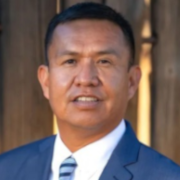
As an experienced Senior Project Manager and Principal with over 24 years of Architectural, Engineering, and Construction (AEC) experience, Stanford Lake is a licensed professional engineer who has completed numerous projects for Indigenous tribes, professional architects, engineers, general contractors, government officials, and private owners. His extensive experience includes project management, quality control inspections, project meetings, construction administration, and engineering design.
Stanford has also worked as a Business Development Manager, where he marketed to current trends, set up business meetings, started a drone service department, selected companies for teaming opportunities, submitted project proposals, and oversaw the financial business operation. He has served on several boards, including Navajo Housing Authority and Yavapai Building Safety Unit Advisory & Appeal Board.
Stanford holds an engineering degree from Northern Arizona University and looks forward to serving on the AISES National Board of Directors if selected. His experience and expertise make him an ideal candidate for this position.
Why would you like to serve on the AISES Board of Directors?
Excited to announce my interest in serving on the AISES Board of Directors to help advance their vision and mission. As a STEM professional, I'm passionate about supporting and mentoring the next generation of students and young professionals. With my experience in cutting-edge technologies, I'm confident I can bring new ideas to the table while supporting the existing goals set by the board and leadership team. Looking forward to the opportunity to serve and lead innovation in the STEM community.
What is your past experience/association with AISES?
Excited to share my past experiences with the AISES community! As the former treasury for the Professional Four Corners AISES Chapter from 2019 to 2020, I provided regular financial updates to both board members and general members. Additionally, I was responsible for submitting end-of-the-year financial reports to AISES headquarters. My time as a past vice president of an AISES student chapter in 1999 provided me with valuable leadership skills and oral communication abilities, which have been instrumental in my career as a professional engineer. Even after college, I've remained an active member of the Phoenix AISES professional chapter, attending meetings and staying up to date with the latest industry developments. Looking forward to continuing to contribute to this amazing AISES community.
Describe your fundraising and major gifts cultivation experience.
As a board member for Four Corners Professional AISES chapter, I had the honor of co-chairing a scholarship fundraising golf tournament in 2019. The event took place in October 2019 in Farmington, New Mexico. I was involved in many logistical steps needed to run a successful golf fundraising event, from calling companies for sponsorships to inviting golfers to this benefit event. It was an incredible experience. In addition, I achieved a long-term goal of mine by becoming an AISES Sequoyah Fellow member in 2020. This major gift contribution was important as a step to do more for AISES.
Given the strategic goal of increasing value to all AISES members, what skills and resources can you provide toward the success of this strategic initiative?
As a professional engineer, I can provide several skills and resources to support the strategic goals of increasing value to all stakeholders of AISES. My capabilities and experience will give and enhance values to AISES' mission statement. These skills include analysis and research data information that tailor to programs. I can guide on reaching demographics within AISES so that it ensures inclusivity and equity in program participation. I can assist in evaluating the overall impact of these programs and assess their growth and long-term benefits. Finally, my resources with other STEM professional organizations and people can help in getting more support for AISES programs. Network resources is important for these programs.
Share your previous experience in serving on a nonprofit Board of Directors. Specify your understanding of the associated fiduciary responsibilities required of a Board member.
My experiences on previous boards have been conducted professionally. My responsibilities include being on time and making sure there is a quorum to take votes for meeting minutes. I was responsible for that sitting board members were in attendance for voting on important issues to be discussed. This was done by email and/or text to board members. Also, I have the privilege of providing an introduction and closing prayers are a few of the meetings, which is important to Native people. I have also chaired subcommittee meetings that I was assigned
Statements of Endorsement
Amber Williams
As Amber Williams, owner of Circa81 Design a design and engineering firm plus a Member of AISES, I wholeheartedly endorse Stanford Lake, PE for the AISES Board of Directors. As my engineering colleague and STEM mentor, Stanford's dedication to supporting the community and commitment as a devoted husband and father exemplify his character and leadership. His expertise in civil engineering and passion for advancing Native Americans in STEM make him an invaluable asset to the AISES organization. I enthusiastically support his candidacy and believe he will drive positive change for AISES and its mission.
Tamara Jim
I am pleased to extend my support and submit my endorsement for Mr. Stanford Lake in this bid for nomination to the Board of Directors for the American Indian Science and Engineering Society. I have known Stanford for many years and he has been recognized for his work and contributions on many projects as a Professional Engineer and small business owner. Stanford is also known for his volunteer work as a previous local government building department board in Prescott, Arizona as well his work with the Four Corner Professional AISES Chapter. I believe that Stanford would be an excellent addition and contributor to the AISES Board.
Ms. Frieda McAlear
Inupiaq 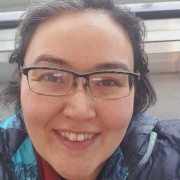
Frieda McAlear, (Inupiaq) MRes, is the Director of Seeding Innovation at the Kapor Center. In 2018, Frieda co-founded the Women of Color in Computing Collaborative (WOCCC) and in 2019 she became a lead Principal Investigator in the Expanding Computer Science for Native American Girls project, now Seeding Innovation, a partnership between the Kapor Center and AISES to provide tribe-specific, girl-focused, culturally revitalizing CS courses to Native-serving schools.
Why would you like to serve on the AISES Board of Directors?
As a recipient of AISES scholarship grants for my Bachelor's of Science degree in Computer Science (2003, honors) and a co-lead team member of Seeding Innovation, a partnership between AISES and the Kapor Center, I would be honored to serve on the AISES Board of Directors to support the continued development of high quality, rigorous programming offered by AISES at all levels of education and the STEM workforce. In addition, my funding and partnership networks may be useful in expanding the fiscal and financial stability of AISES as it seeks to reach new communities and further align its program opportunities and offerings to a changing education and innovation landscape in STEM. Finally, my vision for applying for the AISES Board of Directors includes exploring opportunities for collaboration with Alaska Native tribes, villages, and corporations for STEM college and career pathways which honors their culture, languages, and values.
What is your past experience/association with AISES?
I am a proud AISES scholarship recipient (2001-2003), recipient of the 2019 AISES Nonprofit Partner Service Award, partner and co-Director on the Seeding Innovation project (2019-present), long time presenter at the AISES National Conference, and Advisory Board member (2018-present} of the Native American Women in Computing 2 project, co-led by AISES and TERC. My experience in these roles has been overwhelmingly positive in terms of my impression of the highly collaborative, highly qualified, and exceedingly knowledgeable and growth-minded AISES support staff I've had the pleasure of meeting and working with over the years, and the generative, solutions-oriented, and helpful conversations I've had with AISES leadership and project colleagues on school partner site visits and regular project and research coordination calls since 2019.
Describe your fundraising and major gifts cultivation experience.
I've written and co-written several successful grants for Seeding Innovation, including one from Reboot Representation (2018-19), the main vision for which was incorporated into a successful NSF ITEST grant (2019), and a Comcast partnership grant (2022). In previous nonprofit roles I have supported colleagues on the development of major gifts cultivation material using data analysis and visualization. I have also gained fundraising experience by raising funds for nonprofits on which I've served as a board member (Paballong UK Trust/PUKT, 2010-11), and supported other development opportunities including researching and writing an evaluation report of the Paballong HIV/AIDS Centre in Lesotho on behalf of the PUKT board (2012). Finally, I've contributed to and fundraised for myriad mutual aid projects in my current home city of Huchiun/Oakland, including providing life saving supplies for communities impacted by inequitable US policies, and supporting Black trans mutual aid funds and mental health crisis alternatives to policing.
Given the strategic goal of increasing value to all AISES members, what skills and resources can you provide toward the success of this strategic initiative?
As stated above, I am deeply involved in the development and execution of current secondary school programming as part of the Seeding Innovation (ITEST) project. I have lead the successful development of the project's initial grant funding, its overarching vision, and supported the development of each of the component program parts, including program logic model and research tools, selecting and sourcing Native women in computing for the speaker series, establishing partnerships with Native serving schools, and seeking new opportunities for funding and partnerships, including within the Kapor Center. In collaboration with many talented AISES colleagues, our project team has reached over 250 Native students over the past 4 years in communities as diverse and varied as Lakota, Tlingit, Cherokee Nation, Mescalero Apache, Jemez Pueblo, and Ojibwe territories. Throughout this process, I have uplifted and supported leadership development opportunities for AISES program staff to include speaking opportunities and program vision work.
Share your previous experience in serving on a nonprofit Board of Directors. Specify your understanding of the associated fiduciary responsibilities required of a Board member.
I have served on the nonprofit board of the Paballong UK Trust (2010-11) where I was invited to seek and pursue funding opportunities for the nonprofit's operational expenses, including making regular contributions. In addition, since 2017 I have been a National Committee member of the War Resister's League, a 100+ year old organization dedicated to ending the causes of war. In both of these positions I have sought to balance the current vision of the organization, its historical and original objectives, and the emerging opportunities presented by demographic and cultural/generational shifts in the wider society and target culture. Often these roles have involved gaining the support of other board members to reach consensus on issues on which few members agree and bringing a solutions-oriented mindset to issues which pre-date my membership on the board.
Statements of Endorsement
Janice Mak
I am endorsing Frieda McAlear for the AISES Board of Directors. Frieda is and has been an active AISES member who is a leader in computer science (CS) education initiatives with Indigenous schools and partners. She is highly respected in the CS education community. She recently participated in the launch of Indigenous CS teachers’ affinity group in partnership with AISES and Computer Science Teachers Association. She was a presenter at the Four Corners Computer Science Convening where she shared about her work to expand access to CS pathways and opportunities in partnership with AISES. I am honored to write an endorsement for Frieda and fully support her nomination to the AISES Board of Directors.
Rebecca Luebker
I am honored to endorse Frieda McAlear to the AISES Board of Directors. Frieda is a leader in computer science education and works tirelessly to ensure our children have access to opportunities. Through the Seeding Innovation Project Frieda has created a program that empowers educators and facilitators to use a culturally revitalizing computer science curriculum. This curriculum builds confidence and encourages students who traditionally have not seen themselves in computer science. Frieda’s ability to build communities in each location where the Seeding Innovation Project works creates excitement and uses computer science to make multigenerational connections. Frieda McAlear’s ability to encourage and grow community is the reason I enthusiastically endorse them to the AISES Board of Directors.
Dr. Traci L. Morris
Chickasaw Nation of Oklahoma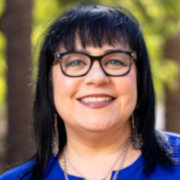
Dr. Morris, the Director of the American Indian Policy (AIPI) Institute at Arizona State University is a member of the Chickasaw Nation of Oklahoma. Under her leadership, the AIPI has grown and diversified its service to Indian Country providing policy analysis, tribally driven research, and economic development capacity building and working with such Indian Country partners as NAFOA, AISES, and the Indigenous Food and Agriculture Initiative.
Morris’s research and publications on the digital divide is focused on Internet use, digital inclusion, network neutrality, and development of broadband networks in Indian Country. Morris spearheaded the groundbreaking Tribal Technology Assessment: The State of Internet Service on Tribal Lands in 2019. Her book, Native American Voices: A Reader, continues to be a primary teaching tool in colleges throughout the country.
Dr. Morris is Affiliated Faculty at ASU's School for the Future of Innovation in Society, an Affiliate of ASU's Center for Gender Equity in Science and Technology, President of the Board of the Phoenix Indian Center, and on the Advisory Council of the Association of Tribal Archives, Libraries, and Museums. Formerly, Morris served a two-year appointment (2014-2016 and 2010-2012) to the Federal Communications Commission's Consumer Advisory Committee.
Why would you like to serve on the AISES Board of Directors?
I believe that my experience in broadband and emerging technologies would be a great asset to the organization. AISES needs to foster the next generation of scholars, scientists, engineers, analysts, coders, and the like as tribes develop their own networks, build server farms, create digital repositories, build AI, and enter the world of digital currency, among other technological advances. This is my area of expertise; this is the area of expertise that the American Indian Policy Institute (which I am the Executive Director of) leads the discourse on. I want to be a part of creating the pipeline of Natives working and creating in this new digital age. I believe the place to do that is via AISES.
What is your past experience/association with AISES?
I have been on the AISES Board for three years now, and I would like to continue in this capacity. Further, as I’ve built the AIPI, building relationships with on-the-ground Tribal organizations has been of the utmost importance. If we are to be a tribally-driven policy institute, we need to work with tribes and tribal organizations. Via the American Indian Policy Institute, we have done contracted work for and built a strong relationship with AISES. Because our area of expertise is in broadband and emerging technologies, we’ve helped facilitate a number of listening sessions on behalf of AISES. Additionally, I and a staff member have both presented our research data at your annual conferences several times. Finally, as we’ve built an organizational relationship with AISES, Executive Director Sarah EchoHawk recently became a part of our Tribal Leadership Advisory Council.
Describe your fundraising and major gifts cultivation experience.
As a past member of the Board and President of the Phoenix Indian Center Board of Directors, I’ve had experience fundraising. PIC is the longest-established urban Indian center in the country. We have several major fundraisers per year. Not the least of which is one of the few American Indian Galas in the Nation. Annually, we host the Silver and Turquoise Ball, which draws up to 750 attendees from all over the nation. The Ball is a huge undertaking. As BOD President, I’m involved in all the major committees, some of the corporate sponsors asks, and most all planning meetings with our honorary chairs. Annually, we also host the American Indian Excellence in Leadership Awards, which is focused on the Arizona tribal community. I do public speaking at each fundraising event and at other community events throughout the year.
Given the strategic goal of increasing value to all AISES members, what skills and resources can you provide toward the success of this strategic initiative?
I've built a non-traditional academic career based on community work. I've done program development for the Arizona Commission of Indian Affairs and was the operations director for Native Public Media. As an entrepreneur with my own consulting business, I did strategic planning for organizations as well as curriculum development and implementation. As the ED of the AIPI, I've built strategic alliances with tribal organizations; built alliances within Arizona State University; formed an advisory board of directors from community leaders so our work is always grounded in what Tribes need; hired staff with the experience to implement the programs we’ve created and mentored our student workers to be the next leaders (one of our students is running for office in Kansas in 2020). I feel that I have much on-the-ground experience to offer AISES in terms of strategic growth and initiatives toward program development for target populations.
Share your previous experience in serving on a nonprofit Board of Directors. Specify your understanding of the associated fiduciary responsibilities required of a Board member.
As a current member of the AISES Board and past Member and President of the Phoenix Indian Center Board of Directors since 2016, I am well aware of the duties of board membership, especially as it pertains to a Tribal non-profit. I believe that the board is only as good as the diversity of membership; it is good to have members from a variety of professional backgrounds and age groups in order to provide guidance and leadership to the organization. Additionally, the diversity of a board lends itself to the greater visibility of the organization and stronger fundraising potential. I understand the associated fiduciary responsibilities, as well.
Statements of Endorsement
Anthony Kahn
I have worked and served with Dr. Traci Morris on the Phoenix Indian Center Board of Directors for past six years. Traci is the current Board President and I am the Immediate Past President. Working and serving with Traci has been a wonderful experience. She brings enthusiasm, knowledge, communication talent, dedication, and more to this position. One of our first assignments was creating a new Vision and Mission Statement for the Indian Center, and it proved to be the start of an excellent working partnership.
Traci has extensive experience and connections in the education field and within Indian Country. She is the Director of the American Indian Policy Institute at Arizona State University. Under her leadership, the AIPI has grown and diversified its service to Indian Country providing policy analysis, tribally driven research, and economic development capacity building. She has also been a faculty member at ASU in the American Indian Studies Department.
Rhonda James
I am writing this letter of recommendation in support of Dr. Traci Morris, Director of the American Indian Policy Institute at Arizona State University.In 2016, I had the opportunity to partner with Dr. Morris for Intel’s first Native American thought leadership convening that I was leading. Because of her expertise and body of work with policy advocacy for Native Americans especially around broadband connectivity, she was the ideal to help facilitate the session. Her experience with working with Native American nations, Tribal businesses/leaders, non-profits and academia, were instrumental in helping us to navigate the discussions and identify firm actions that were published in a whitepaper.
Over the years, I have continued to engage with Dr. Morris, not only because she is an all-around good human being, but also because she is reliable and committed; she is my “go-to” person for ideating with especially when I am working on strategies for Intel as it relate Native American communities. I believe that Dr. Traci Morris is an ideal AISES board member who will bring a wealth of knowledge and experience to help AISES execute its mission and to increase its impact on society.
Mrs. Makalika D Naholowaa
Native Hawaiian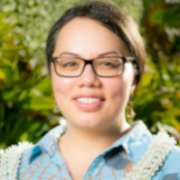
Makalika Naholowaʻa is a lawyer and indigenous peoples’ advocate. As the Executive Director at the Native Hawaiian Legal Corporation, Makalika works daily with her colleagues to fulfill NHLC’s mission to protect and advance Native Hawaiian identity and culture with legal and advocacy services. Makalika’s practice experience includes intellectual property, technology law, consumer protection law, indigenous human rights, and traditional knowledge matters. She started her legal career handling trademark, copyright, and unfair competition matters in private practice at a Vault 100/AmLaw 100 law firm in the Pacific Northwest. She then moved in-house and continued her IP and tech law practice at a Fortune 100 technology company. She held several roles including the leader of the company’s global trademark practice group and Chief of Staff for the General Counsel. Makalika frequently writes, speaks about, and advises on intellectual property and traditional knowledge, indigenous peoples’ issues, and DEI in the legal profession. She holds a degree in law from Columbia Law School and a Bachelor of Science in Mathematics with a Concentration in Computer Science from Arizona State University.
Why would you like to serve on the AISES Board of Directors?
My interest stems from passionate belief in the importance of the mission and wanting to give back to a community and organization that opened many doors for me. While the world's problems continue to mount in severity and there's an increasing look to science and engineering disciplines for novel solutions, native inclusion in this work is as important as ever. Our people, cultures, and traditional knowledge have so much to offer. Yet efforts at equitable opportunity to educational and professional opportunities are under fierce attack. And we know that without inclusion all will suffer, but our own communities are likely to disproportionately bear the immediate consequences. It's critically important that communities and associations remain steadfast in persistent efforts to achieve inclusion. I would be honored to take part in that work as a board member.
What is your past experience/association with AISES?
I was an AISES school chapter member and officer during my undergrad at Arizona State University between 2000 and 2004. I credit my successful launch into the professional world to the people and career development opportunities I found at AISES locally and at national events. After graduating, I eventually became staff at Microsoft, and participated along with other indigenous staff there to support Microsoft's engagement with AISES. I will always be grateful for the ways that AISES contributed to my life, and I hope I have the opportunity to give back in this way.
Describe your fundraising and major gifts cultivation experience.
I am not a professional fundraiser, but I have experience with developing campaigns for nonprofits, donor stewardship, and writing grants. My current role is as an Exec Director for a 501(c)(3), and I am on 3 charitable boards right now. I do not have a tap into deep pockets of personal or foundation wealth, but I know how to develop a succinct and compelling pitch, and I'm willing to work the network I have to create make-sense connections and seek financial support for efforts that are important and deserving.
Given the strategic goal of increasing value to all AISES members, what skills and resources can you provide toward the success of this strategic initiative?
Listening to people, empathizing deeply with their experiences and needs, and then taking measured risks to try creative ideas that respond to their needs is an approach to people-problems that I'm proud of. Once I worked with a team to design a scholarship program. The conventional wisdom was to issue a scholarship during the school year intended to offset tuition and living expenses. The insight I brought to the table was that student loans for those expenses were very accessible, but post-grad, those loan programs largely dried up and students were in dire straights during a period when they could not work but must study for an intense professional exam. So we pivoted the program to cover that time. At the time, that kind of aid was rare. Now it is more common because that gap is better understood, however, we got there faster by being creative and different.
Share your previous experience in serving on a nonprofit Board of Directors. Specify your understanding of the associated fiduciary responsibilities required of a Board member.
I am a member of numerous nonprofit Boards and have had many trainings on governance and the duties of a nonprofit board member. I am currently the President of the National Native American Bar Association and its related foundation; the Vice-Chair of the Council for Native Hawaiian Advancement; a Director with the Native Hawaiian Chamber of Commerce; and a Director for the Women's Fund of Hawaii. I also have past experience serving in leadership with other nonprofit associations and charities. Additionally, my role as an Executive Director of a nonprofit has afforded me significant experience supporting a Board with governance and board duties.
Statements of Endorsement
William Tiger
I am writing to endorse and recommend Makalika Naholowaa for a seat on the AISES Board of Directors. Makalika has a history with AISES being an AISES Member in college pursuing a STEM Degree. Later she studied Law and obtain a JD and law license. Her career has taken her from the corporate world with IBM as a IP attorney, and actually leading IBM’s IP department worldwide, to her current role running a law office dedicated to Native Hawaiian rights and justice.
Makalika would bring the experiences and passion the board needs to help AISES meet its mission of increasing the representation of Indigenous People in STEM. As a matter of fact, she would bring a unique set of skills and experiences which would make AISES stronger and more prepared to meet the challenges of meeting the AISES mission. Her managerial talent is proven and needed in many different situations.
Tracy Monteith
I’m a citizen of the Eastern Band of Cherokee Indians, a senior computer science engineer, and an AISES Sequoyah Fellow. I fully endorse Makalika Naholowaa for a position on the AISES Board. I have known Makalika for a decade and worked with her for roughly 8 as colleagues at Microsoft and leaders of the Indigenous @ Microsoft employee resource group.
Makalika understands the critical importance of native inclusion in STEM and STEM industries, a deep demonstrated appreciation for AISES, and the experience in profit and nonprofit leadership to contribute to strategic leadership and strong governance of the organization. She is also a cultural practitioner, and a long time ally to native communities other than her own, that positions her to lead in a culturally sensitive and competent manner for the benefit of the diverse community of native students and professionals AISES serves.
Diandra Benally
I am a citizen of the Navajo Nation, the General Counsel of the Fort McDowell Yavapai Nation, and I am an AISES Sequoyah Fellow. I am honored and happy to endorse Makalika Naholowaa for a position on the AISES Board. I have worked with Makalika for nearly ten years as colleagues and leaders of the National Native American Bar Association (NNABA), where Makalika is the current President.
Makalika is a dedicated member of the native STEM and legal communities. As a lawyer, she is one of the few native people in the country that has deep practice experience contributing to creative and innovation industries as an intellectual property lawyer, including at Microsoft where she combined her legal and pre-law technical experiences to support engineering projects that advanced technical innovation. She has held many professional roles, including several in nonprofit leadership and for indigenous serving organizations like NNABA. In all the roles she has held, she’s been a steadfast advocate for native communities, native students, diversity, and inclusion, as well as a strategic thinker with exceptional vision, character, and work ethic. Makalika is an authentic and transformational leader that AISES would be fortunate to have as a member of its board of directors.
Dr. Wendy K'ah Skáahluwáa Todd
Haida 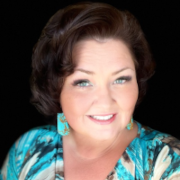
Dr. Todd is a Dr. Howard Highholt Endowed Professor at the UMD Duluth appointmented in Departments of American Indian Studies and Earth Sciences. She was an AAAS ST&P Fellow at NSF working across the Directorates for Education & Human Resources and Geoscience. In 2021 she founded the Indigenous Geoscience Community as a community of Indigenous geoscientists sharing cross-cultural knowledge to address the need for an international community of diverse scholars and cultural practitioners. Dr. Todd helped found the “Opening the Box” high school traditional knowledge bridging program to provide STEAM summer camps for Alaska Native students, provide cultural training for mentors, and teachers in collaboration with Sealaska Heritage Institute. She hosts the Indigenous geoscience REU experience examining STEM, traditional knowledge, and policy.
Dr. Todd is a geoscientist and oceanographer who researches groundwater ecosystems and examines attitudes of geoscience professionals towards diversity. She is Assistant Editor for Journal of Geoscience Education and guest editor for Oceanography journals diversity issue. Dr. Todd founded the Geoscience Education Program in her home community using Traditional Knowledge, language, and culture an serves as President on the Board of Directors for Xáadas Kil Kuyáas Foundation a 501 (C)3, non-profit for language reclamation of the Haida language.
Why would you like to serve on the AISES Board of Directors?
I joined AISES in 2008 as a graduate student, it was my first public speaking experience in a session on increasing Native representation in STEM. I remember the faces of everyone there. I remember their support and kindness, something I had never experienced. Throughout the conference I was enamorued by all the Native scholars, cultural practitioners, and elders. It was life changing and set the path forward for me as a Native scientist. It was the first time I knew I could be a Native scientist as a whole person. I was inspired by the idea of incorporating culture and language into research, it inspired me to do the same. As part of my personal journey the opportunity to serve on the AISES Board of Directors allows me to acknowledge and honor the pivotal role AISES played in my life and career.
What is your past experience/association with AISES?
Since my first meeting in 2008, I have presented at AISES regional and national meetings around the topic of Native education and identity in an effort to encourage students to persist in their chosen discipline and to do so with pride as a Native scholar, have had the honor of serving as a board member for the past three years.. As a graduate student I presented my research every year, and have brought fifty rural Alaska Native students to national meetings. In 2014 when I presented my last presentation as a graduate student I was honored with a Sequoia medal at the awards ceremony. Since then I have continued serve AISES as a judge, recruit and fund Native students attendance at ASISES meetings. In an effort to continue to encourage Native scholars engagement with AISES I have made a commitment to sponsor a Sequoyah medal for outstanding Native scholars.
Describe your fundraising and major gifts cultivation experience.
As a board member for my tribes non-profit, XKKF, which focuses on reclamation, preservation and perpetuation of the Northern Haida Dialect, I have co-written grants raising $300,000.
In addition, I have raised over $10 million in funds for Native research and education initiatives from state and federal agencies, and assisted my tribal community in procuring $3.0 million in state funds for remediation of the coastal ecosystem. In my current position as faculty at the University of Minnesota Duluth since August 2019, I have received $4.3 million for Native undergraduate and graduate opportunities.
Given the strategic goal of increasing value to all AISES members, what skills and resources can you provide toward the success of this strategic initiative?
Throughout my career I have collaborated with tribal communities, academia, non-profit, state and federal organizations to establish STEM education and research programs to support and encourage Indigenous youth. One such program “Geoscience Education Program” within my tribal community in Hydaburg Alaska collaborated with the elders, tribal leadership, and the school district. I was given the opportunity to collaborate with Sealaska Heritage Institute in developing the “Opening the Box” bridging program for Alaska Native Youth, cultural training for mentors and high school teachers. I founded the Indigenous Geoscience Community to provide a safe space for both scholarship and cultural identity, cross-cultural knowledge exchange, and networking for a global community.
Share your previous experience in serving on a nonprofit Board of Directors. Specify your understanding of the associated fiduciary responsibilities required of a Board member.
I have served on the Board of Directors for my tribal communities non-profit, XKKF, for almost a decade. July 2023 I was elected President of XKKF. During this time, I have actively sought and acquired funding, consistently attended all board meetings, developed the foundations short-term (5 years) and long-term (20 year) roadmaps, mission statement and goals, developed and maintained the foundations online platforms, developed and distributed language materials, hosted online language learning opportunities, and presented at national meetings the importance of reclamation of Native languages. All activities engaged in as board member have been down so with the utmost respect, ethics, and responsibility as a representative of not only XKKF but as a member of my tribal community, in accordance with my fiduciary responsibly as a board member of XKKF.
Statements of Endorsements
Kathryn Gardner-Vandy
I am endorsing Dr. Wendy Todd because of her commitment to serving Indigenous students and professionals as they navigate the STEM landscape. Dr. Todd’s efforts to build community for Indigenous scholars are significant, especially in validating the experiences of Indigenous youth and creating Elder networks to support them. She also works with youth and communities to bring cultural and scientific knowledges together into unique programs to co-cultivate STEM and cultural identity at an early age. Dr. Todd is herself a powerful role model and change-maker within the academic realm, innovating pedagogical methods to reflect cultural practices. She paves pathways for Indigenous students to find their way and creates safe spaces for them to express their whole selves. I hope Dr. Todd can bring her experience, wisdom, and vision to the AISES community for many years to come.
Judith Brown Clarke
For the past eight years, I have collaborated with Wendy Todd and have been deeply impressed with her strong scientific and technical background, coupled with her outstanding teaching, community outreach, public policy and professional accomplishments.
She is currently an assistant professor, with a joint appointment in American Indian Studies and Earth & Environmental Sciences at the University of Minnesota Duluth. She is also the associate editor for the Journal of Geoscience Education, an editor and co-founder of UMD’s Native Community Editorial Board, and an external review committee member for the review of the National Science Foundation’s Division of Earth Sciences’ practices and policies.
As a PI or co-PI, Wendy has successfully solicited over $7M on externally funded grants that enhance educational and research opportunities for Native American/Alaskan Native students. In summary, Wendy’s scholarship and profession are in direct alignment with the mission and values of AISES.
Annual Report & Financials | Privacy Policy | Site Map | Copyright AISES 2022
Registered 501(c)(3). EIN: 73-1023474
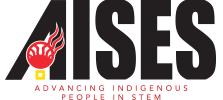
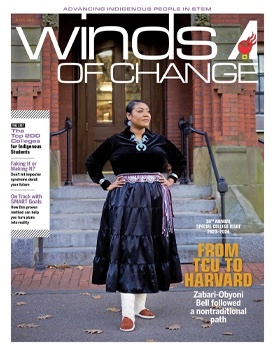
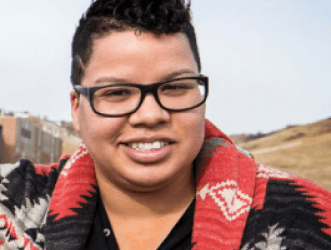
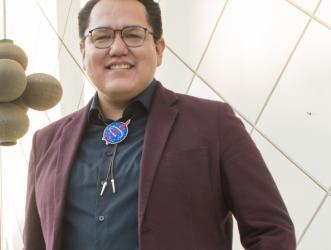
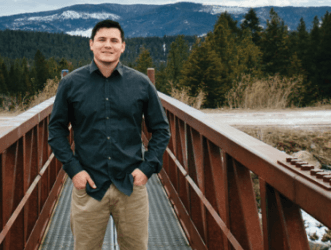

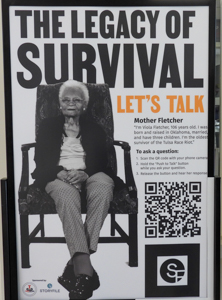
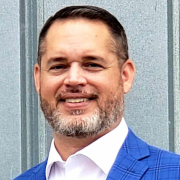
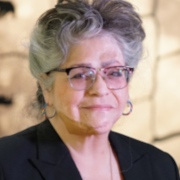

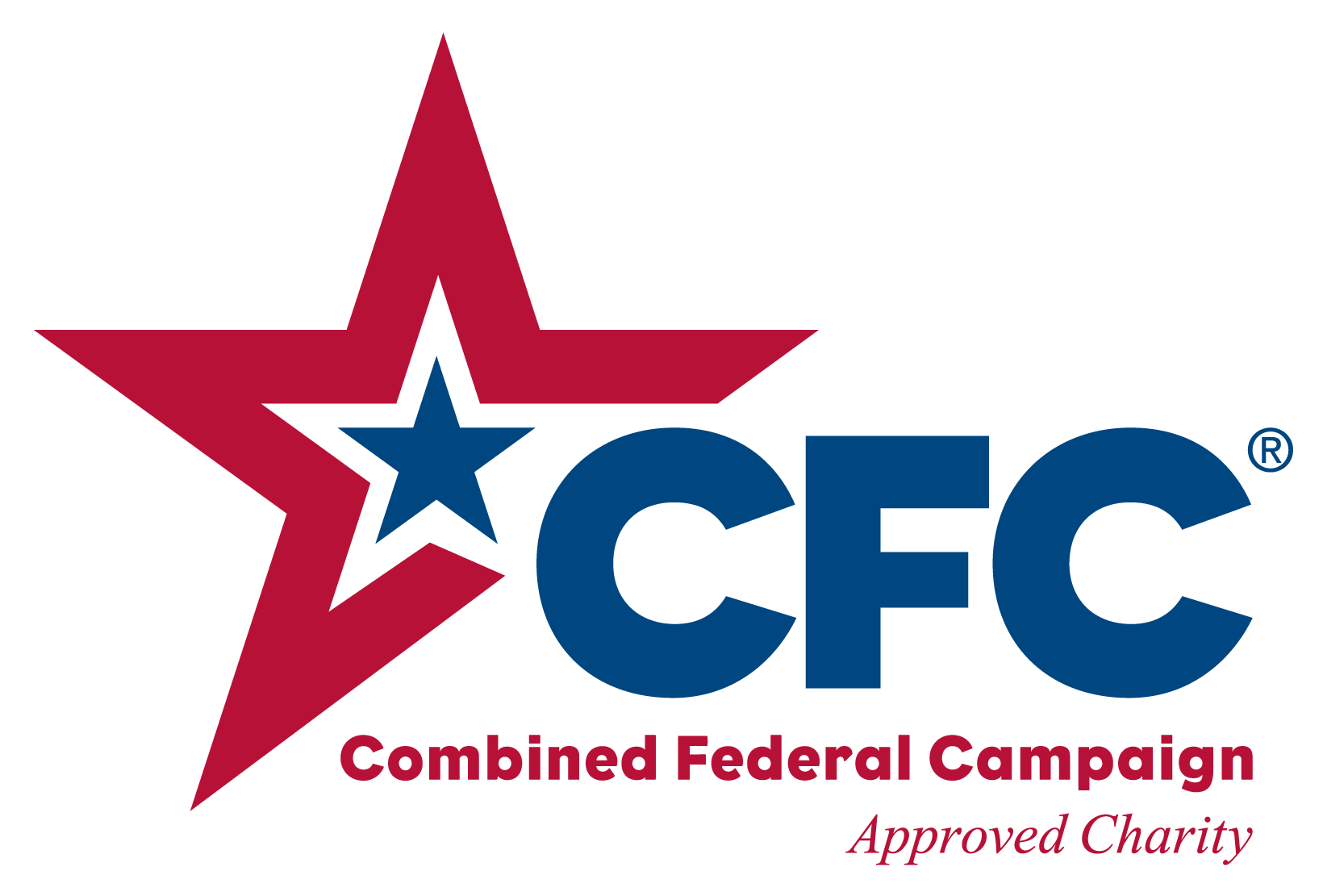

 Facebook
Facebook Twitter
Twitter Linked In
Linked In YouTube
YouTube